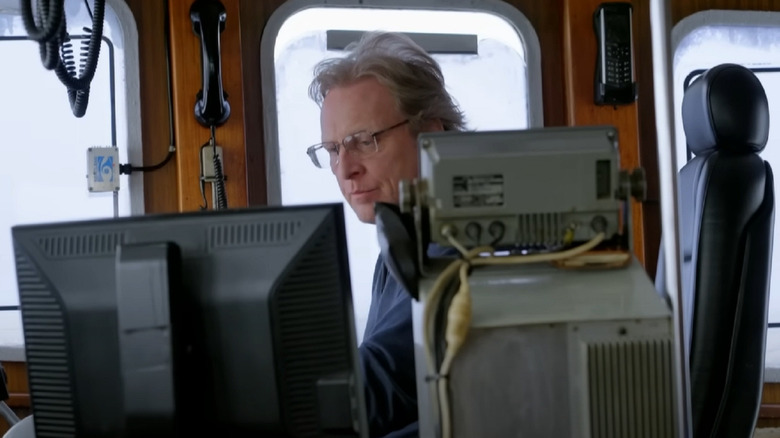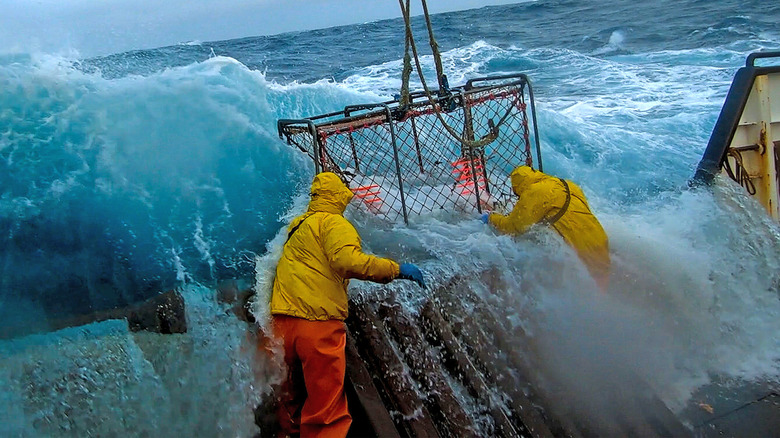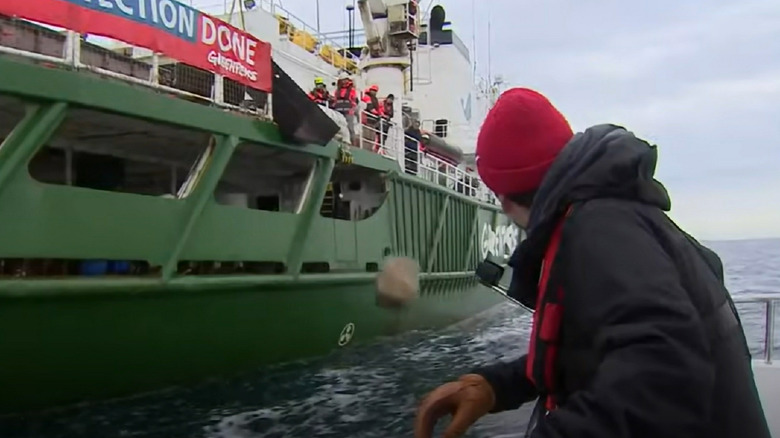Deadliest Catch S19: Cast Uses Same Rocky Methods As Greenpeace To Stop Trawlers
The first few minutes of the premiere episode of Season 19 of the documentary series "Deadliest Catch" have made it clear that there is one nemesis the crews will be fighting against illegal fishing, one of the main villains behind the worldwide issue of overfishing.
Episode 1 of the new season is appropriately titled "Call of a New Generation," as it probably sees the most significant influx of new cast members in the show's history of many years. Not only are most of the new faces relatively young, but they are also a more diverse bunch than usual, breathing some freshness into the Discovery television series that has captured the tough reality of working on this job since 2005.
One of these new additions is Jack Bunnell, a 28-year-old third-generation fisherman following in his father's footsteps. He joins fishing veteran and LA-born Steve "Harley" Davidson aboard the F/V Barbara J, a new vessel for the hardened captain. Bunnell has a few tricks he learned from his father that he brings to the table. Interestingly enough, one of these tricks he uses aims at hindering bottom trawling activity, and it has also been used by Greenpeace many times before. What's the secret? It's pretty simple; it all has to do with rocks — really big rocks.
Boulders under the sea, under the sea...
In case you do not know, bottom trawling involves dragging massive nets across the bottom of the ocean, indiscriminately collecting and scrapping all that is there, and destroying precious habitats that should be under constant protection. On Twitter, Greenpeace U.K. wrote in February 2021 that the still ongoing practice in protected areas "makes a mockery of the word protected."
In an attempt to foil trawling activities, Greenpeace has used the method of dropping large boulders into the sea so that these can get caught in the trawling nets and bring their unregulated activities to a stop.
In the first episode of this new season of "Deadliest Catch," newcomer Jack Bunnell showcases that he has learned a lot from his father – who is now retired due to a stroke – about the life of a fisherman and specific helpful hacks that can be used to make their job easier and more productive. One of these hacks is the same used by the environmental non-profit organization to prevent trawlers from operating and destroying everything in their path.
"The apple did not fall far from the tree." Steve "Harley" Davidson said about the younger man as he coordinated the placement of boulders on the boat.
Although he says that, Harley shows some concerns about Bunnell's new methods. In fact, he calls the 28-year-old to the wheelhouse to chastise him about not having the crew wear hard hats while they were hoisting heavy boulders above their heads. "You wanna be a Captain on this boat, you better abide by the rules," Harley assertively tells him.
Greenpeace's war on trawlers
A news report from 2020 cited a study that revealed that 97% of underwater protected areas in the United Kingdom had been subjected to destructive bottom trawling activities. In retaliation, Greenpeace tried to thwart the harmful actions of fishing crews who use this method.
While Jack Bunnell may not have kept all safety precautions in mind, Greenpeace has guaranteed that its methods of dropping boulders on the ocean floor are entirely safe for personnel. In this Euronews video, you can see the activists' precautions to conserve certain North Sea areas. It's also worth noting that the NGO members all wear the hard hats Davidson told Bunnel that they'd need to abide by the proper safety regulations.
Despite the fundamentally harmless nature of this preventive tactic, a report from The Guardian revealed that the U.K.'s Marine Management Organisation tried to come after Greenpeace legally. Thankfully, the judge dismissed the complaint, calling out the irony of trying to prosecute an NGO with the same objective: to protect marine life and habitat and improve sustainability.
Hopefully, the tactic of dropping boulders on the seabed keeps yielding results for Greenpeace and the crew of the F/V Barbara J.


